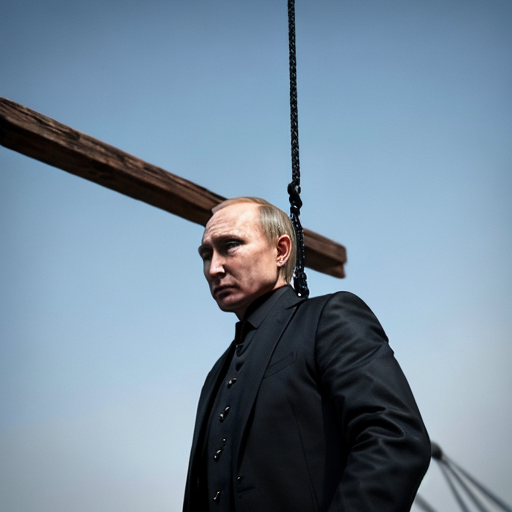
The main motivation for my hard line against Russia’s invasion of Ukraine is that it is a gross breach of the strongest taboo in post-WWII international relations: the agreement to not use wars of aggression for territorial aggrandizement.
This post-WWII taboo grew out of the execution of the leaders of Germany and Japan at the end of the war. The strongest legal basis for their execution was that they were guilty of launching aggressive warfare for territorial aggrandizement, which was a breach of the Kellogg-Briand pact of 1927 that outlawed such warfare.
Japan and Germany were both signatories. As was the Soviet Union. Russia is the legal heir to the agreements of the Soviet Union. There have been no major violations since WWII, except Iraq’s subjugation of Kuwait, which rightly caused an immense reaction where most of the major powers (including Russia) joined together to eject Iraq from Kuwait.
To allow the breaking of this long-standing taboo by Russia risks leading the world back to the state before Kellogg-Briand, where aggressive warfare was a legal means of international relations. Nobody was hanged after WWI because aggressive warfare was still legal then and considered a legitimate tool of international relations.
With the power of today’s weaponry across many domains: nukes, bio-war, drones, autonomous robots, psych war, hard digital attacks, and more, bringing back major cross-border war as a legal means to settle international disputes considerably raises the risk of events that could terminate our advanced technological society.
Some would rightly point out that while cross-border wars of territorial aggrandizement have been nearly non-existent since WWII, there have been many other kinds of armed conflict. Wars of decolonization like Algeria vs. France, wars of secession like Biafra vs. Nigeria and the Tamil Tigers vs. Sri Lanka and Kosovo vs Serbia, and numerous civil wars, especially in Africa. There have also been wars of regime change, mostly launched by the USA against Panama, Grenada and, most egregiously Iraq II. And wars at the time of the breakdown of artificial multi-ethnic states like in ex-Yugoslavia.
It’s important to note that none of these wars resulted in significant changes in external borders. And while some of them were very costly in lives — for example, the various Central African civil wars, the nature of those kinds of conflicts has been self-limiting to one or two countries. Nor because conquest by an aggressor wasn’t on the table, they didn’t naturally escalate to all-out war at the level of intensity of the World Wars, where 50 to 70% of the GDP of the major engaged countries was allocated to warfare.
Should cross-border warfare for territorial aggrandizement return to the scene, with their existential threat to the countries involved, we should expect the emergence of alliances and collective defense pacts such that a single isolated fight, instead of staying localized, has a natural means of contagion. We’re already seeing the prelude to this in Russia vs Ukraine, with two coalitions building up to support the two hot combatants. And we are seeing many countries rapidly ramping up their defense industries.
Should Russia prevail, the next potential target of Russian aggression is likely to be part of a defensive alliance that would lead to a much wider war. The same would likely be true for an attempt by China to conquer Taiwan.
Since losing wars of territorial aggrandizement is an existential risk, there are no prudential inhibitions on the intensity of such wars. 50% of the GDP of major nations applied to warfare with modern technology, even if weapons of mass destruction are not used, would be truly appalling. Russia is currently at about 5 or 6% of GDP in its assault on Ukraine. Imagine 10X the intensity. And especially consider that in the context of the fragility of our infrastructure systems. Disruptions in our electrical and data networks could easily trigger a collapse of our rather tall techno-economic stack.
This is of the utmost importance. It’s probably more important than any other issue on the political table. War is THE worst thing that humans have invented. To let loose the dogs of war again as a legitimate means of settling international disputes would be insane.







